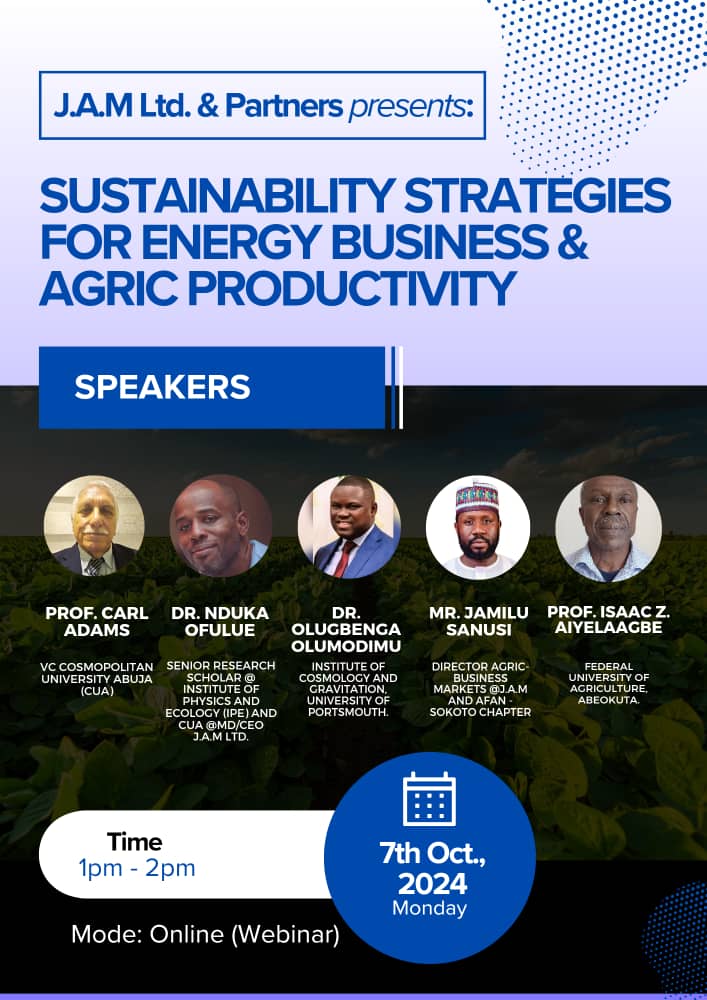
Prof. Carl Adams, Vice-Chancellor, Cosmopolitan University Abuja (CUA), says Nigeria, with sufficient endowment of energy sources, has the potential to be the most innovative sustainable energy country for improved agriculture.
Adams made this submission in an interview with the News Agency of Nigeria (NAN) on Sunday ahead of the Sustainable Energy Forum (SEF-2024), slated to take place from Nov. 4 to Nov. 8 in Abuja.
The forum is being organised by JODOR Asset Management (J.A.M) Ltd. in collaboration with CUA, Institute of Physics and Ecology, Ministry of Petroleum Resources, Ministry of Power, among other partners.
The forum will bring together relevant stakeholders across Nigerian and African energy spectrum, to identify sustainable energy challenges, a national and African framework for improved innovative solutions.
Adams explained that if Nigeria could have sustainable energy to boost agricultural development and sustainable transportation of goods and services, it could enhance food security.
The academic decried the challenges in the energy sector and their effect on food security.
“Nigeria has so much crops and vegetables and should be self-sufficient in the food industry; Nigeria should be good exporter in the sector.
“But there should be a mechanism for more development from farm to table and from farm to the markets and supermarkets.
“Supermarkets here in Nigeria can serve Africa with quality farm produce and food; so, African countries can depend on Nigeria’s potential and this is where energy comes in,” he said.
The vice-chancellor urged the government to venture into manufacturing of electric vehicles for sustainable transportation of goods from rural areas to other cities.
He added that such approach would drastically reduce food importation and inflation in Nigeria.
In his contribution, Dr Nduka Ofulue, Managing Director, J.A.M and the convener of SEF-2024, said to achieve food security, a key mandate of President Bola Tinubu’s government, sustainable energy must be achieved.
“Sustainable food security and sustainable energy security are two targets that must be achieved; both sectors depend on each other and are critical for economic development.
“The third target is sustainable human capital which is a pivot for the food security and energy security sectors; our sustainable future depends on the alignment of all three; these and more will be the focus at SEF-2024.’’
He said that looking back at Nigerian economy in the last decade, inflation and monetary indices were moderate to tough but currently much tougher.
The managing director said in 2014, with fuel price at N87 per litre and exchange rate below N200 per dollar, Nigeria had monetary policy that was constant over time and fiscal policy that became very tough to grasp post 2015.
“Today, we have fuel at about N945 per litre and exchange rate hovering N1600 plus to one dollar; and this has driven inflation up.
“As a result, the cost of goods and services have gone up in the course of transporting food produce from different parts of the country to others, having systematic effects on prices of commodities,” he said.
Ofulue said the forum would consider utilisation of more energy sources, through advanced technology for sustainability of the sector.